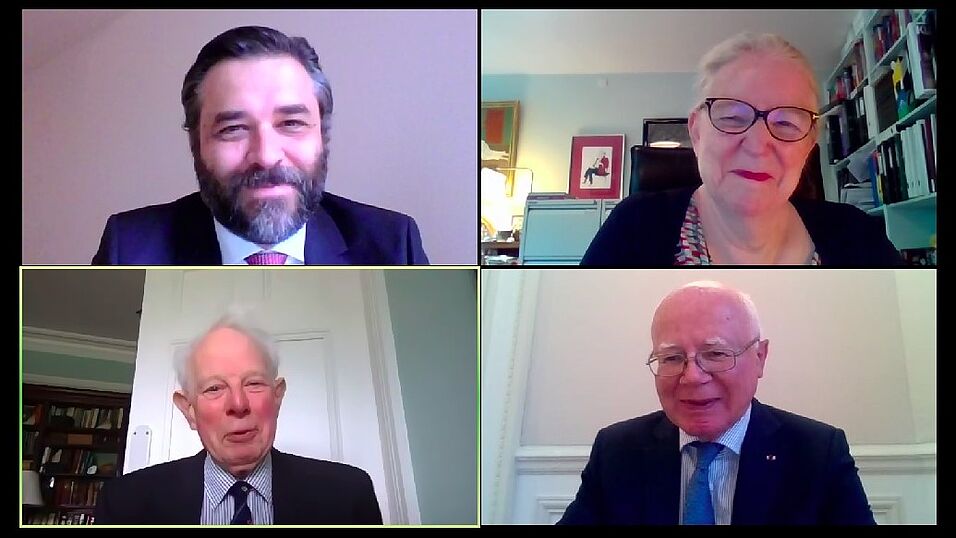The webinar was based on the ELI Principles for the COVID-19 Crisis, in particular Principles 3 (Democracy), 4 (Lawmaking), 5 (Justice System) and 15 (Return to Normality). Lord John Thomas (Chair; First ELI Vice-President; former Lord Chief Justice of England and Wales, UK), Ole Böger (Judge, Higher Regional Court in Bremen, Germany), Anne Birgitte Gammeljord (Member of the ELI Executive Committee; Supreme Court lawyer, Denmark) and Bruno Lasserre (Member of the ELI Senate; Vice-President of the Conseil d’État, France) presented the Danish, French, German and British perspectives on issues such as courts’ responses to the crisis, including court hearing arrangements, the use of different technological and procedural tools and the role of courts in upholding democratic principles and controlling executive lawmaking during and after the crisis. The outlook for the future, including how to manage backlogs, was also discussed.
In the Q&A session that followed, lessons learned by courts as a result of the COVID-19 crisis, the question of whether certain types of cases will need to be prioritised over others and if so whether the solution to this is more judges, accelerated or extra-judicial measures, the role of technological advancements in drafting/amending wills in future without the need for physical attestation before a notary, witness, etc, and the possibility of a unified digital strategy in the EU were addressed.
More information on further upcoming webinars for ELI Members is available here. Also, videos of the previous ELI webinars on the ELI Principles for the COVID-19 Crisis, on Hardship & Force Majeure and on Insolvency and Collection Proceedings Post-COVID-19 are archived for the interested public to watch.
We apologise for a few short interruptions in the webinar video.
The PowerPoint presentation from the meeting is available here:

